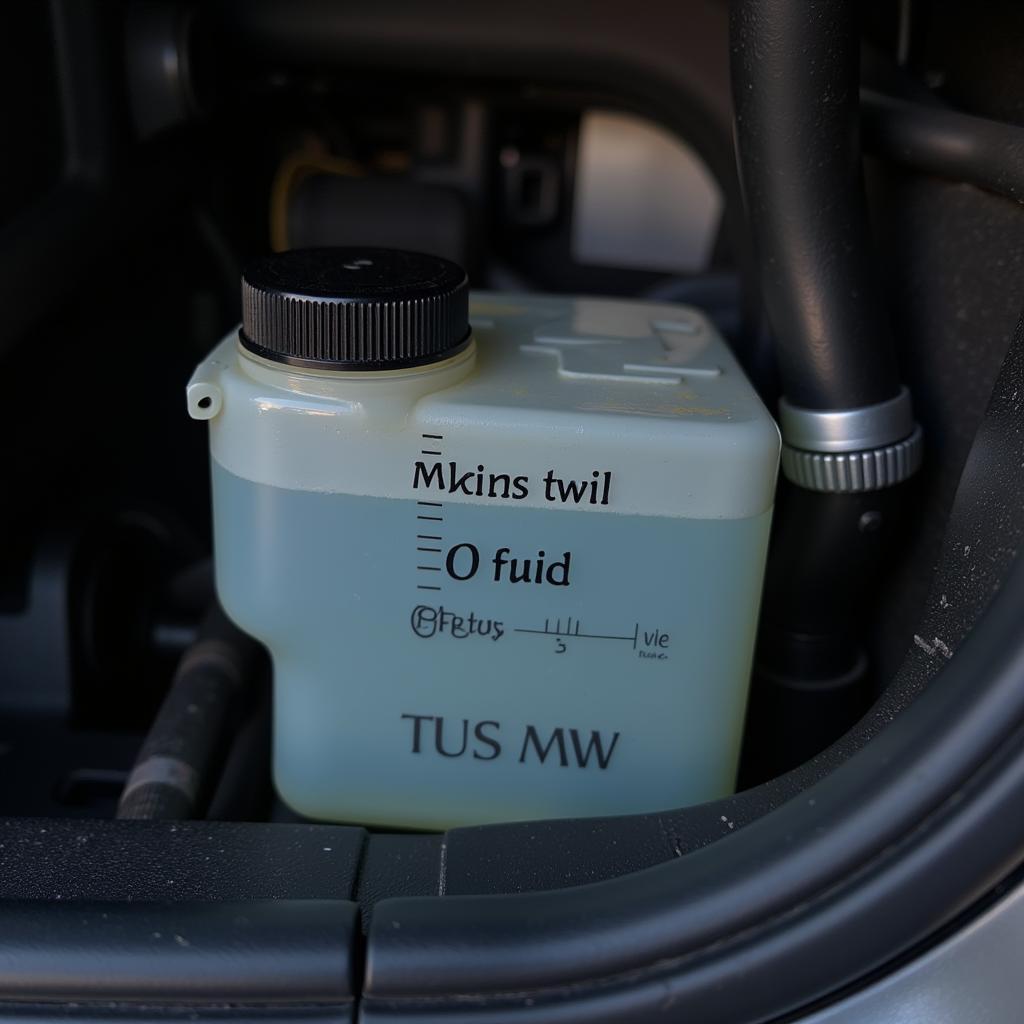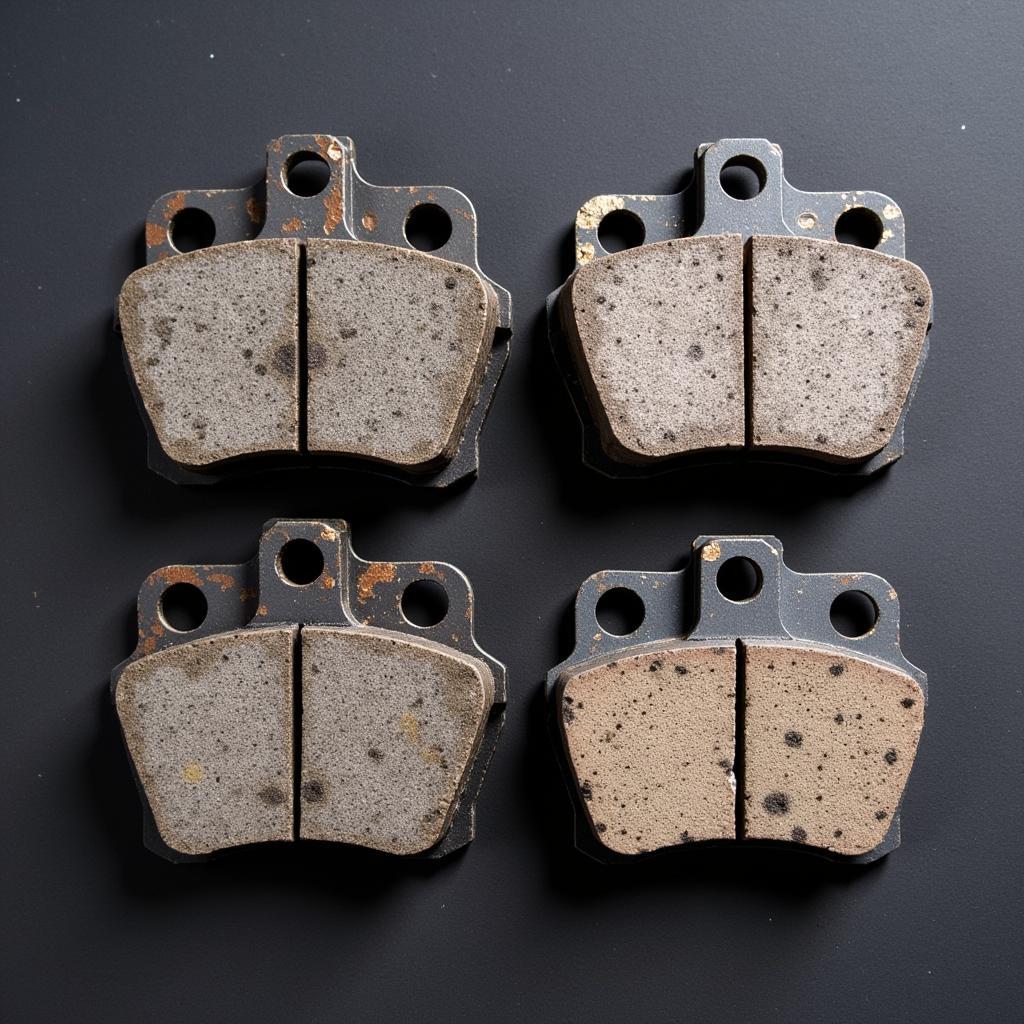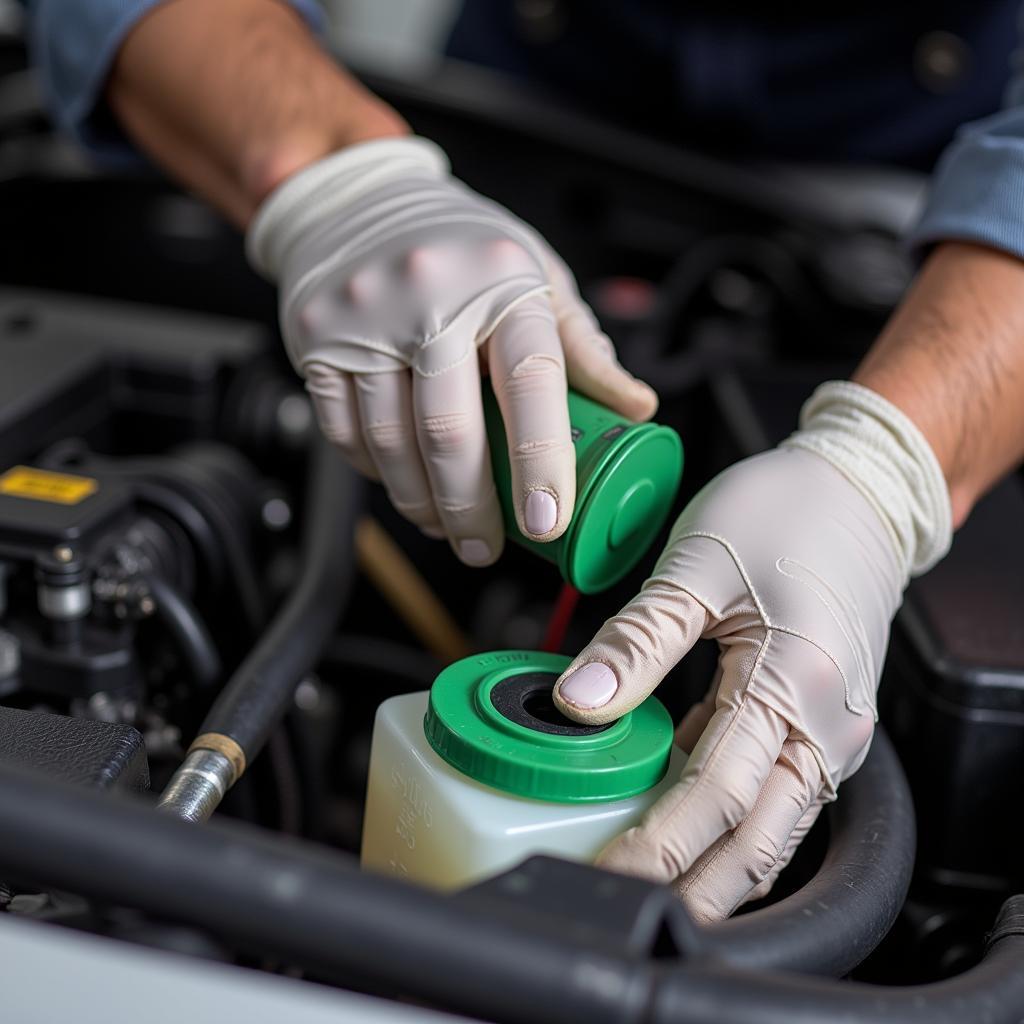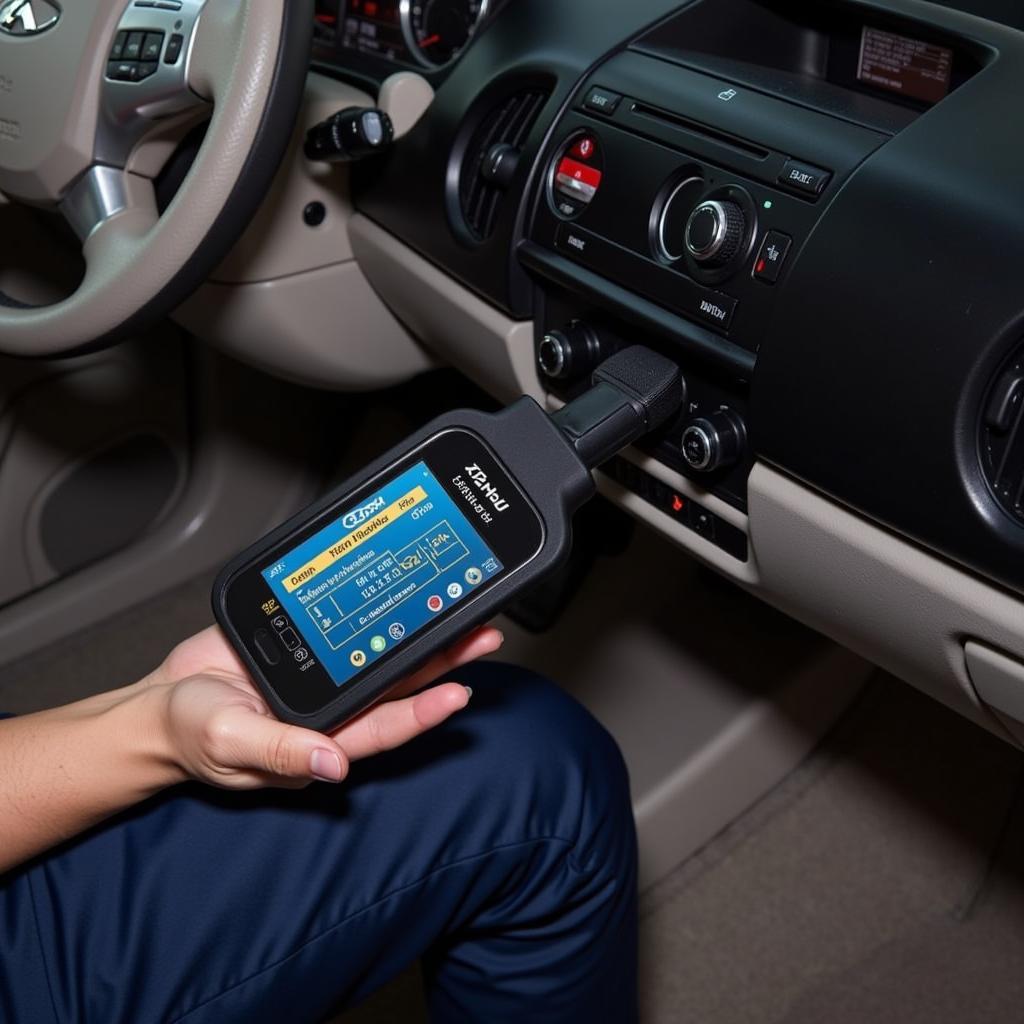The brake warning light on your dashboard is a crucial safety feature, especially in your trusty Volkswagen Passat. When it illuminates, it’s your car’s way of telling you something might be wrong with the braking system and needs attention. Ignoring it could jeopardize your safety and lead to costly repairs. This comprehensive guide will walk you through the common causes of a Passat brake warning light and provide practical solutions to get you back on the road safely.
Common Causes of a Passat Brake Warning Light
Several factors can trigger the brake warning light on your Volkswagen Passat. Let’s dive into the most common culprits:
1. Low Brake Fluid Level
The most common cause is low brake fluid. Your Passat, like all vehicles with hydraulic brakes, relies on brake fluid to transmit force when you press the brake pedal. If the fluid level drops too low, air can enter the system, reducing braking efficiency and illuminating the warning light.
 Low Brake Fluid Reservoir
Low Brake Fluid Reservoir
2. Worn Brake Pads
Brake pads are your first line of defense when stopping. Over time, they naturally wear down due to friction. Most Passats have wear sensors in the brake pads that trigger the warning light when the pads reach a critical thickness.
 Worn Brake Pads
Worn Brake Pads
3. Faulty Brake Light Switch
Your Passat’s brake light switch activates the brake lights when you press the pedal. A malfunctioning switch can disrupt the signal, often causing the brake warning light to illuminate on the dashboard.
4. ABS Issue
Your Passat is equipped with an Anti-lock Braking System (ABS) for enhanced control during hard braking. If the ABS system detects a problem – such as a faulty wheel speed sensor – it can trigger the brake warning light.
5. Brake Caliper or Rotor Problems
While less common, issues with the brake calipers (responsible for clamping the brake pads) or rotors (the discs that the pads grip) can also cause the warning light to turn on. This could be due to sticking calipers or warped rotors.
Troubleshooting Your Passat Brake Warning Light
Here’s a step-by-step guide to help you diagnose and address the issue:
- Check Your Brake Fluid: Park your Passat on a level surface and pop the hood. Locate the brake fluid reservoir (refer to your owner’s manual if needed). Check the fluid level – it should be between the “Min” and “Max” markings. If it’s low, add the correct DOT specification brake fluid (check your owner’s manual).
 Checking Brake Fluid Level
Checking Brake Fluid Level
-
Inspect Your Brake Pads: If you have some mechanical know-how, you can safely inspect the brake pads. Look through the spaces between the wheel spokes to get a visual on the brake pad thickness. If they appear thin, it’s best to have them inspected by a professional.
-
Listen for Unusual Noises: When applying the brakes, pay close attention to any unusual sounds. Grinding, screeching, or clicking noises often indicate brake pad wear or other brake system issues.
-
Don’t Delay Professional Diagnosis: If you’re unsure about any aspect of inspecting your brake system or the warning light persists, do not delay seeking professional help. Driving with a compromised braking system is extremely risky.
Passat Brake Warning Light Reset
In some cases, after addressing the underlying issue (like adding brake fluid), you might need to reset the brake warning light. The procedure may vary slightly depending on your Passat’s model year. Refer to your owner’s manual for specific instructions.
2002 vw passat brake warning light, 2004 vw passat brake warning light
Expert Insights
“Many car owners underestimate the importance of regular brake system maintenance,” says John Smith, a seasoned automotive technician with over 20 years of experience. “Don’t wait for the warning light to pop up. Scheduling routine brake inspections can prevent costly repairs and, most importantly, keep you safe on the road.”
Conclusion
A glowing brake warning light in your Volkswagen Passat is a clear sign that something requires attention. Addressing the issue promptly ensures your safety and prevents potential damage to your vehicle. By understanding the common causes and following the troubleshooting steps, you can take the right action. However, if unsure, seeking professional help from a qualified mechanic is always the safest approach.
Remember, your Passat’s braking system is critical for your safety and the safety of others on the road. Never ignore the warning signs!

